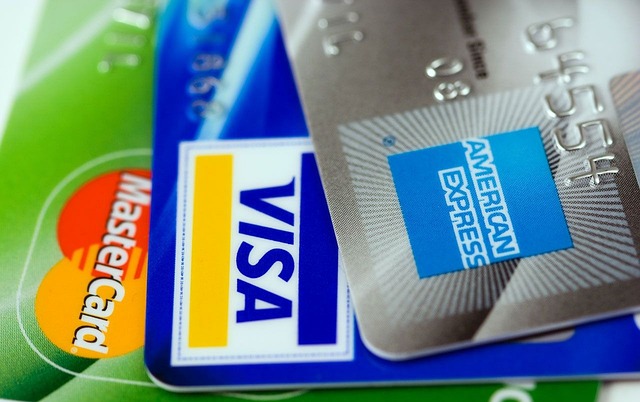Budgeting is a cornerstone of a strong financial foundation, and starting on the right foot can set you up for success. If you’re new to budgeting and personal finance, this guide will help you understand the basics, build your first budget, and stick to it. Let’s dive in!
Why Budgeting is Important
Budgeting helps you:
- Take Control of Your Money: Know exactly where your money is going.
- Achieve Financial Goals: Save for emergencies, pay off debt, plan for a vacation, or work toward financial independence.
- Reduce Stress: Avoid the anxiety of living paycheck to paycheck.
Steps to Create Your First Budget

1. Track Your Income and Expenses
Before creating a budget, you need to know how much money you have coming in and going out.
- Income: Include your salary, side hustle earnings, government benefits, or any other sources.
- Expenses: Track every expense for at least three months, including fixed expenses (rent, utilities, transportation, loan payments) and discretionary expenses (dining out, entertainment, travel). Download my free Personal Spending Plan to start tracking your expenses today!
2. Categorize Your Spending
Group your expenses into categories like:
- Housing (rent/mortgage, utilities, taxes, insurance)
- Transportation (car payments, fuel, maintenance)
- Food (groceries, dining out, alcohol and bars)
- Debt repayment (personal loans, student loans, credit card interest)
- Savings (retirement contributions, emergency fund, sinking funds)
- Travel and Entertainment
- Subscriptions (cable, streaming, phone, etc.)
- Shopping (durable goods, clothes, household supplies, gifts)
- Miscellanious (all other categories)
3. Choose a Budgeting Method
Here are a few beginner-friendly options:
- 50/30/20 Rule: Allocate 50% of your income to fixed expenses, 30% to discretionary expenses, and 20% to savings or debt repayment. You can adjust the ratios according to your financial situation. For instance, if you have a significant amount of high-interest debt, consider reducing the discretionary category and being more aggressive on debt paydown.
- Zero-Based Budget: Assign every dollar a job until you have zero left over.
- Envelope System: Use cash for specific categories to limit spending.
4. Set Realistic Goals
Decide what you want to achieve with your budget. For example:
- Save $5,000 in the next three months.
- Pay off $2,000 of credit card debt by the end of the year.
- Achieve financial independence before you turn 50.
5. Use Tools to Help You Stay on Track
- Budgeting Apps: Monarch Money, YNAB (You Need a Budget), and Goodbudget make tracking your finances easier by linking to your accounts and automatically downloading transactions. These apps allow you to categorize expenses and set up rules for automation, saving you time and effort.
- Spreadsheets: Spreadsheets like Excel or Google Sheets allow for complete customization, making them a versatile option for budgeting. You can tailor your budget to fit your unique needs and preferences. However, manually inputting transactions from account statements can be time-consuming and discouraging, often leading to inconsistencies in maintaining your budget.
Both options have their merits, but I strongly prefer and recommend budgeting apps over spreadsheets. Apps offer unmatched convenience with automation, real-time updates, and additional features like net worth tracking and custom reports. For example, I spend just 30 minutes a week managing our finances using Monarch Money. The time saved and the insights gained make it a superior choice for staying on top of your finances. Here’s my referral link to Monarch Money to get an extended 30-day free trial.
Whether you use a free spreadsheet like my Personal Spending Plan or a feature-rich budgeting app, the important thing is to take action by committing to creating a budget and tracking your expenses.
6. Monitor and Adjust Regularly
Life changes, and so will your budget. Review it at least monthly to ensure it still aligns with your goals. I recommend reviewing it a couple times a week until you have a strong grasp on your spending habits.
Common Mistakes to Avoid

- Being Too Strict: Allow room for small indulgences to stay motivated.
- Skipping Emergency Funds: Aim to save at least three to six months’ worth of expenses.
- Ignoring Irregular Expenses: Plan for annual costs like insurance premiums or holiday spending. This is a great use case for sinking funds.
- Not Saving for Retirement: Prioritizing short-term goals over long-term retirement planning can jeopardize your financial future. After paying off high-interest debt, start contributing to a retirement account as early as possible to take advantage of compound interest.
Tools and Resources
Here are some resources to make budgeting easier:
- Templates: Download free budgeting templates online or download my Personal Spending Plan for a ready-to-use solution to track your income and expenses.
- Apps: Try tools like Monarch Money or YNAB.
- Books: Read “The Total Money Makeover“ by Dave Ramsey or “I Will Teach You to Be Rich“ by Ramit Sethi.
FAQs
Q: What is the easiest budgeting method for beginners? The 50/30/20 rule is a great starting point as it’s simple and flexible. Adjust ratios according to your financial situation.
Q: How can I stick to my budget? Track your spending regularly, set attainable goals, and reward yourself for milestones.
Q: Can I budget with an irregular income? Yes! Base your budget on your lowest monthly income and save any excess to cover lean months. Consider using a separate account for the excess.
Q: What if my expenses exceed my income? If your expenses are higher than your income, prioritize needs over wants and look for areas to cut back. Focus on essential expenses like housing, utilities, and food, and minimize discretionary spending. Additionally, consider increasing your income through side hustles or other opportunities. Tracking your expenses carefully will also help you identify unnecessary costs to eliminate.
Q: What is a sinking fund? These are separate savings accounts (or sub-accounts) for each goal, allowing you to allocate specific amounts to each one. They are perfect for savings goals or irregular expenses. Many online banks including Wealthfront offer customizable categories to help you stay organized.
Key Takeaways
- Budgeting is essential for taking control of your finances, achieving goals, and reducing stress.
- Start by tracking your income and expenses, then choose a budgeting method that works for you.
- Use tools like budgeting apps or spreadsheets to simplify the process and stay consistent.
- Regularly review and adjust your budget to align with changing circumstances.
Stay on track with your financial journey! Subscribe to the newsletter for exclusive tips, tools, and updates to help you master your budget and achieve your financial goals.
Phillip founded Hacking Your Finances after reaching financial independence in 2024 and leaving his corporate career to follow his passion for helping others optimize their finances. Combining his love for personal finance and travel hacking with years of professional expertise, he provides practical strategies to help readers maximize credit card rewards and achieve their financial goals.


